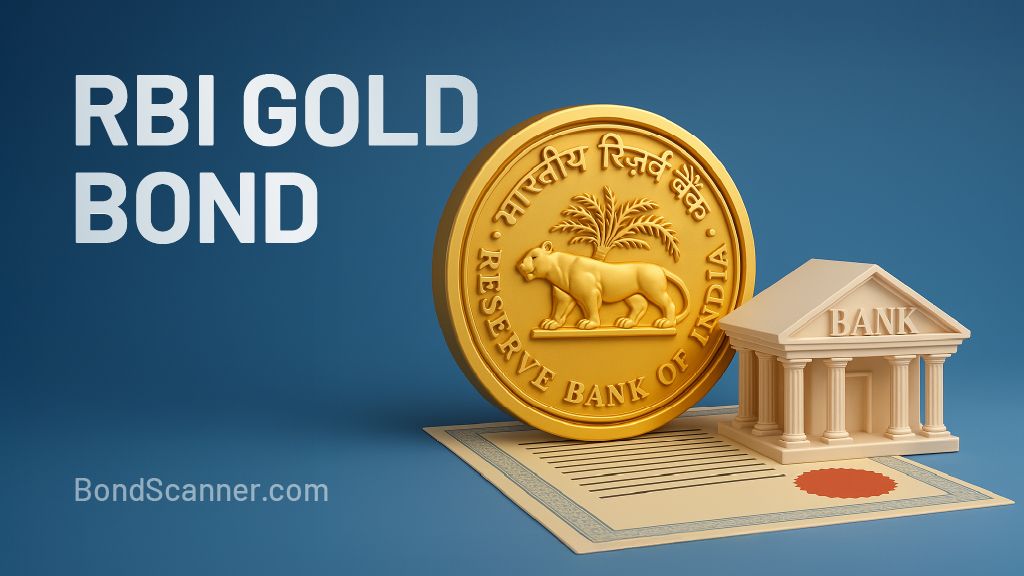RBI Sovereign Gold Bonds: A Beginner’s Guide to India’s Most Trusted Gold Investment
20 November 2025

The Story of Why India Fell in Love With RBI Gold Bonds
For generations, Indian households have trusted gold more than any other asset. From wedding gifts to emergency savings, gold has always been the silent guardian of our financial lives.
But in 2015, something changed.
The Reserve Bank of India launched the Sovereign Gold Bond (SGB) scheme, a way to own gold without a locker, without theft risks, without making charges, and with interest on top. Slowly, families began discovering that this was far better than buying physical gold. By 2025, SGBs had grown into one of India's most preferred long-term investments.
If you’re just starting your investment journey, this guide is your friendly, story-driven introduction to SGBs redemption dates, redemption price, interest, benefits, and how they actually work.
What Are RBI Sovereign Gold Bonds?
RBI Sovereign Gold Bonds are digital gold investment certificates issued by the Reserve Bank of India.Each unit represents 1 gram of gold, and the bond tracks the price of gold published by the RBI.
The government backs the bond, which means your investment is as safe as it gets.
Key Features at a Glance
Issued by the RBI Denominated in grams of gold 8-year maturity Exit option from year 5 Interest of 2.5% per year (on investment amount) No GST or making charges No storage or purity worries
How Do RBI Gold Bonds Work?
1. Buying the Bond You apply when a new tranche is announced. These tranches will continue through 2025 and 2026, so investors will have multiple windows to subscribe.
2. Holding the Bond Your units appear in your Demat account (or certificate form). You continue earning interest paid every six months.
3. Redeeming the Bond At maturity (8 years), the RBI automatically redeems your units at the prevailing gold rate. Your returns depend on: Gold price movement 2.5% annual interest Redemption price announced by RBI
Understanding Redemption: Dates & Prices
RBI Sovereign Gold Bond Redemption Dates
All SGBs mature in 8 years from the date of issue. They also have an early exit option after year 5, but only on interest payout dates.
Example: If you bought an SGB in August 2018, early exit opens in August 2023, and final redemption will be in August 2026.
RBI Sovereign Gold Bond Redemption Price
The redemption price is based on: The simple average of 999-purity gold prices from the last 3 business days, published by the India Bullion and Jewellers Association (IBJA).
This ensures transparency and reflects the true market price of gold.
Why RBI Gold Bonds Are So Popular: A Real-World Story
Picture this:
A young investor named Rohan buys his first SGB in 2017. At the time, gold was around ₹28,000 per 10 grams. He only bought it because his father insisted gold was “safe”.
Eight years later, the RBI announces the SGB redemption price, and gold has climbed to over ₹60,000. Rohan not only doubled his money he also earned 2.5% interest every year, without visiting a jeweller even once. This is exactly why India’s younger generation now prefers RBI Sovereign Gold Bonds over physical gold.
Benefits of RBI Gold Bonds
1. No Storage or Security Risk Digital gold = no tension.
2. Earn Interest on Gold 2.5% annually, something physical gold never gives.
3. Tax-Free Redemption After 8 Years Capital gains are exempt at maturity.
4. Transparent, RBI-Backed Instrument No purity issues, no making charges.
5. Easy to Buy & Sell From banks, brokers, or online portals.
Risks to Keep in Mind
1. Gold Price Volatility If gold falls, your returns may reduce.
2. Limited Liquidity Before 5 Years Though they trade on exchanges, volumes may vary.
3. Long Lock-In for Best Benefits Tax-free redemption applies only at 8-year maturity
How to Buy the Next SGB Tranche (2025–2026)
Step-by-Step
1. Watch for RBI announcements 2. Apply through your bank, broker, demat provider, or UPI portals 3.Receive units digitally 4.Track gold prices and interest payouts
FAQs About RBI Gold Bonds
Recent Blogs

GPF Full Form: Understanding General Provident Fund and Its Role in Salary
A detailed guide explaining the GPF full form in salary, its benefits, working mechanism, and how it functions for employees in India.
20 Feb 2026

Difference Between Loan and Debenture: Understanding Key Financial Concepts
Explore the key differences between loans and debentures, their characteristics, benefits, and how each works in corporate finance.
20 Feb 2026

AMO Order Explained: What It Is, Charges, Timing & How to Place an AMO Order in Zerodha
Learn about AMO (After Market Orders), how they work, charges, validity, and how to place AMO orders in Zerodha, along with key differences from pre-market orders.
19 Feb 2026